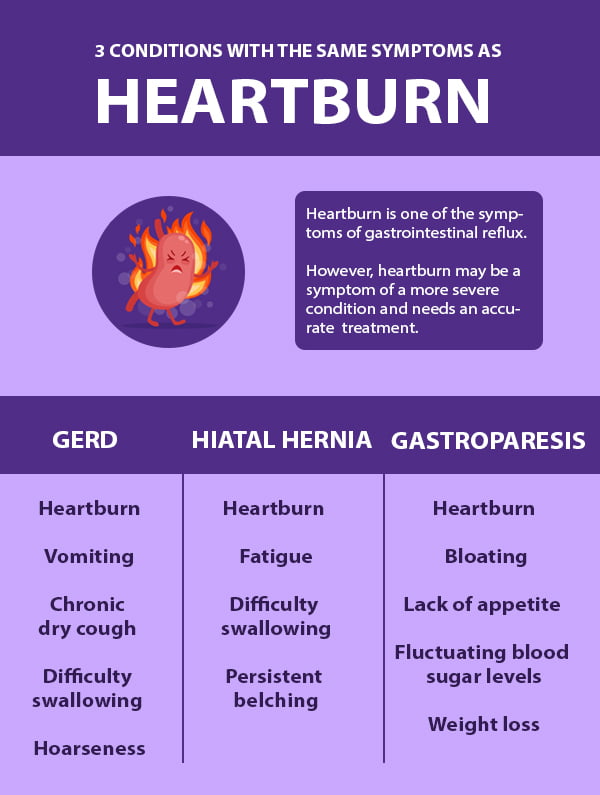You likely recognize the burning sensation in your chest following a big meal. Also called acid indigestion, heartburn is an uncomfortable feeling when acidic food or stomach acid backs up into your esophagus. Heartburn is one of the symptoms of gastrointestinal reflux. However, heartburn may be a symptom of a more severe condition and needs an evaluation for an accurate diagnosis and treatment plan. Our doctors can diagnose the underlying cause of your acid indigestion and treat it appropriately. Here are three conditions that can cause heartburn:
1. GERD
GERD, or gastrointestinal reflux disease, is the most common cause of frequent heartburn. You might have GERD if you experience heartburn two or more times per week. If you have GERD, you’ll probably exhibit other symptoms besides heartburn, such as vomiting, a chronic dry cough, difficulty swallowing, and hoarseness.
The condition results from a weakened valve between your stomach and esophagus that lets the acid back up, so controlling your food intake doesn’t prevent heartburn. Our gastroenterologists in New York City for GERD rely on an upper endoscopy to diagnose GERD. If you have it, he can help you change your diet, provide medication, or perform surgery in the worst case. Without treatment from a GERD doctor, GERD can lead to other complications, including Barrett’s esophagus, a condition that can lead to throat cancer.
2. Hiatal Hernia
Pressure on your stomach from an injury or congenital disability can cause a hiatal hernia. This condition happens when your stomach pushes through the opening, or hiatal, where your esophagus is attached. Food and acid can get pushed through the opening, too, resulting in acid indigestion.
In addition to chronic heartburn, you may experience fatigue, difficulty swallowing, and persistent belching. Most people need to modify their lifestyle to lose weight — obesity is a significant contributor to the condition. Other long-term complications of untreated Hiatal hernias include Barrett’s esophagus and ulcers.
3. Gastroparesis
If the muscles in your stomach don’t function correctly, you may have gastroparesis. Often the result of damage to your vegas nerve, gastroparesis can be caused by diabetes, anorexia or bulimia, an infection, some medications, abdominal surgery, or Parkinson’s disease. In addition to heartburn, you may experience bloating, lack of appetite, fluctuating blood sugar levels, and weight loss.
Our doctors rely on upper endoscopy to rule out other causes of the condition. A gastric-emptying study can help him verify gastroparesis, which to date has no cure. Instead, you’ll receive lifestyle counseling to change your diet, although medications may help as well.


